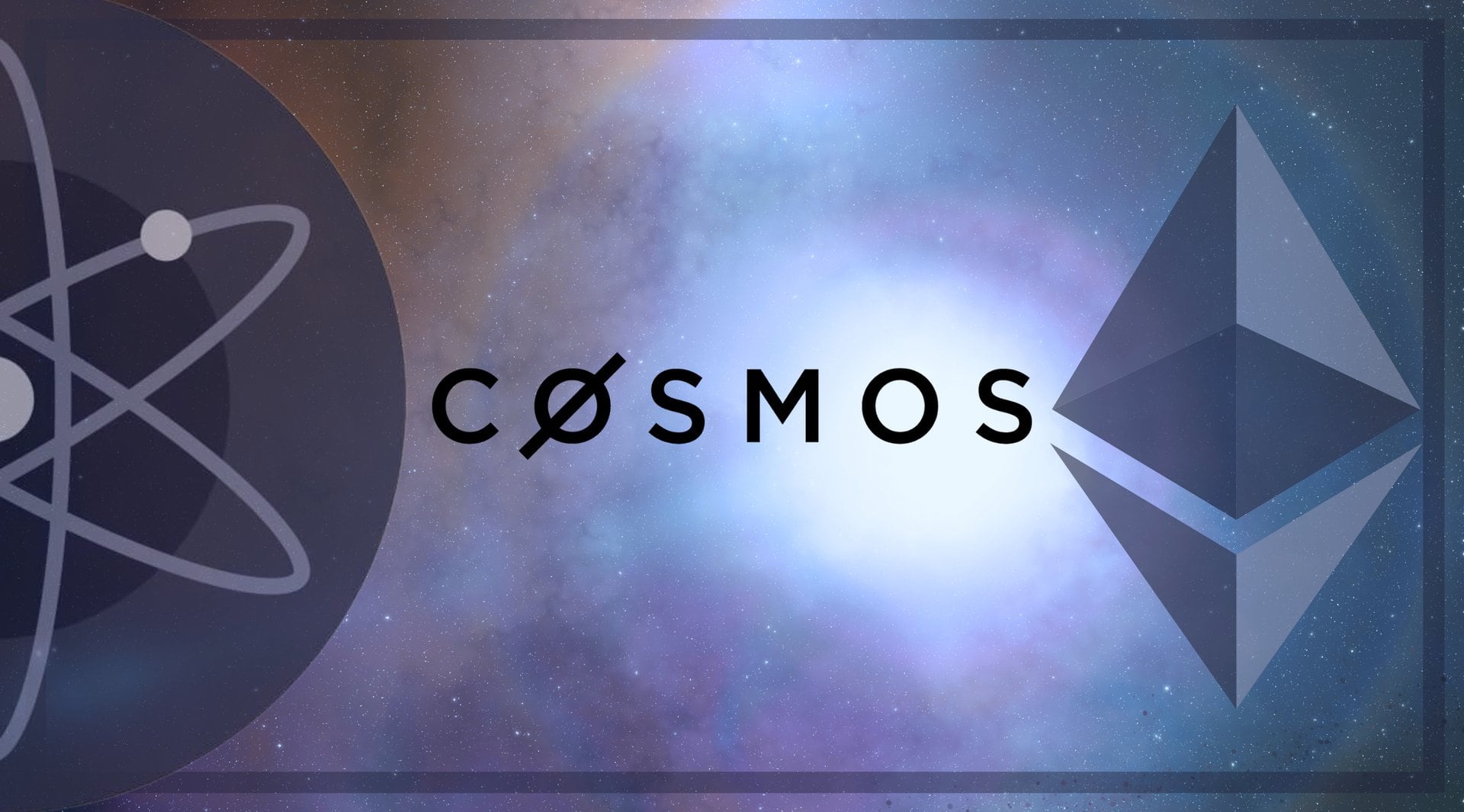One of the most prestigious venture capital firms in the technology space is Sequoia Capital. The investments of Sequoia Capital include household names like Zoom, Apple, Airbnb, Instagram, or WhatsApp. However, they don’t just invest in the traditional technology space. They also invest in companies looking at ‘Space’. Like SpaceX, who they have invested over $600 million into so far.
It’s not a coincidence that Sequoia is involved with one of Elon Musk’s businesses. Sequoia partner Roelof Botha was CFO at PayPal when Musk was the CEO. However, that’s not the only reason for Venture Capital firms to look at Space projects. Sequoia is particularly enthusiastic about things like SpaceX’s Starlink internet service.
SpaceX Funding Round at $74 Billion Valuation Was Led by Sequoia [Enablers of Tesla 2.0] https://t.co/PEi7M5QCPI pic.twitter.com/knVhoG6PuV
— UnHedgedChatter (@UnHedgedChatter) February 18, 2021
Other household names amongst VCs include Andreessen Horowitz or Cathie Wood’s Ark Invest. Cathie Wood has launched her space ambitions furthest amongst the VCs. Last year Ark Invest revealed that it is preparing to launch a space exploration ETF which launched in April 2021.
As opposed to Sequoia though, Cathie is more interested in reusable rockets that are needed to get Elon Musk to Mars. If you want to know more about these rockets, SpaceX’s Falcon 9 is a good example. It’s the world’s first orbital class reusable rocket.
Falcon 9’s first stage has landed on the Of Course I Still Love You droneship – marking SpaceX’s second launch and landing from Vandenberg in less than 12 days pic.twitter.com/LO1kdWAAKB
— SpaceX (@SpaceX) July 22, 2022
Andreessen Horowitz got involved with space investments even earlier. In March 2018 the venture capital firm made its first ‘Space Investment’ in a satellite startup called Astranis.
But where the traditional VCs are focusing on different elements of space infrastructure. There is also a lot of use cases for distributed ledger technology or blockchain in space. Something we have seen a lot of in smart cities for example.
Do Smart Cities provide a Taste of Things to Come?
It’s hard to completely understand how things might look in 20- or 30-years’ time. Of course, one can watch Star Wars, Star Trek, or Avatar to help create an image of the future. However, it’s much easier to explore some existing use cases that are already defying what people consider to be ‘normal’. One of those use cases is the rapid emergence of the Smart City, as a phenomenon and as a use case for what might await us.
And when it comes to smart cities, most of them have built much of their infrastructure on blockchain. Most of them also embrace digital assets as a form of payment. The futuristic setting of Akoin City was one of the first times that people could start to imagine how a city of the future could look. Underpinned by Stellar’s blockchain, the Akoin token is still available to investors at a fraction of the price it was last year.
Akoin City isn’t the only smart city implementing blockchain technology. In a recent story on DisruptionBanking, CityDAO’s project in Wyoming was highlighted. Plans are for the blockchain city to be managed on the Ethereum blockchain.
Find out more about CityDAO, Akon City, Lugano and other Crypto Cities that are becoming more and more popular with governments across the world. #CryptoCities #AkonCity #CityDAO #Tether #Lugano #Miami #BitcoinCity #EthereumCity https://t.co/ImU38STLSp
— #DisruptionBanking (@DisruptionBank) March 15, 2022
Unfortunately, assets on earth seem to be prone to hackers and other security breaches. Something that the Bahamas stablecoin learnt about recently. But there may be a way to better safeguard the infrastructure of these futuristic cities.
The Cutting Edge of Space
Blockchain has been reinvigorated by talk of Web3 and the Metaverse. The technology behind it will dominate many of the things we will take for granted in the future. Today we can take one cutting edge technology and implement it in the most advanced sector out there today, into space. And one firm is leading this charge. SpaceChain.
Founded in 2017, SpaceChain is the world’s leading integrator of space and blockchain technologies. SpaceChain established the first satellite platform to provide secure custody, transact digital assets, deploy smart contracts, and facilitate Decentralized Finance Infrastructure on space nodes. SpaceChain aims to bring advanced security and global access, integrating software-defined payloads to process blockchain applications in orbit.
Heralded as a catalyst for the creation of the New Space Economy, one of its first applications will be space-based multi-signature technology for financial services.
Banks are more than interested in the topic. For instance, Morgan Stanley offered some insights into how they believe the space industry could be worth $1 trillion by 2040. In 2020 Citi believed the space industry was worth $424 billion. Other banks are also keenly monitoring the ‘space’.
SpaceChain offers leading-edge technology of the future
So, what could a company like SpaceChain offer to investors and customers? We spoke to Evan Slattery who runs the Business Development in the UK market for SpaceChain. Evan offered us more insights.
The appointment of a new CEO for SpaceChain was one of the first things that Evan touched upon:
#SpaceChain announces Cliff Beek (@cliff_edges1) as the company’s new #CEO. A @Wharton alumnus and veteran leader of high-growth #tech companies, Cliff will now steer SpaceChain’s #global expansion agenda, starting with the #US.
— SpaceChain (@SpaceChain) August 3, 2022
Read more here: https://t.co/lwaAkTpJpI#btc #eth
“He’s got many years’ of experience in the space industry. A true veteran of the industry,” Evan explained. Sharing how Cliff Beek, the new CEO, will also be helping the company to grow in the U.S. A vital market for their products. A marketplace where Evan believes that customers need to be shown that blockchain is not only acceptable within the space industry, but how it’s also a very important part of the space industry.
When it comes to smart cities, Evan also believes that smart cities will often rely on space technology. SpaceChain would be supplying the encryption and blockchain services to them via the space environment, he shared.
SpaceChain has been going for five years now and Evan speaks about the company with a sense of pride. He’s a naturally curious individual, especially about space and blockchain. Every day is a learning process for him, he added how “seeing a space company with this rapid growth, and satellites already in space,” makes him proud to be there. “It’s a very forward-thinking and innovative place to be.”
Building for the future with SpaceChain
Evan also explained how the company is building for the future. With projects like SpaceX, Evan believes there is a reinvigorated space ambition developing. He shared how there is a need for more education in the sector, and how SpaceChain are already involved:
#SDC22 BRONZE SPONSOR: SpaceChain! @SpaceChain established the first satellite platform to provide secure custody, transact digital assets, deploy smart contracts, and facilitate a Decentralized Finance Infrastructure on space nodes ⭐
— UKSEDS (@UKSEDS) August 9, 2022
We can't wait to work with you!🛰️#UKSEDS pic.twitter.com/UTfEgWeZsm
The international nature of space means that Houston and the regulation of space continues to be a significant priority for all the stakeholders involved. Just consider some of the problems we are facing when it comes to Russian and Chinese space ambitions. The space is very delicate.
Evan explained how SpaceChain are creating a lot of technology that needs to be validated. To do this, it is essential that the company works with official bodies who regulate the space. This has become even more of a priority as the firm increases its presence in the U.S.
“We are seeing lots of opportunities not just in the U.S., but also in the UAE and the UK,” Evan explained. SpaceChain is keen to hear from potential customers, partners or investors who want to get involved with growing the network.
On the topic of the space being worth $1 trillion by 2040. Evan had a few comments. “Whether we like it or not, space is in the process of receiving a lot more investment both public and private,” Evan explained. He pointed to the growth of SPACs to raise money for space investment. Especially when it comes to Richard Branson’s Virgin Orbit who went public last year through a SPAC.
Make sure you've got your head around what a SPAC is.
— #DisruptionBanking (@DisruptionBank) February 27, 2021
This weekend's papers talk about it a lot, with 3 UK tech firms already getting involved. #disruptionbanking #SPACshttps://t.co/2ZwwM7ioON
“But it’s not just about SPACs.” Evan warned. “It’s also about the intersection where blockchain meets space technology. It’s about what space can do for blockchain, or space can do for crypto,” he continued.
“And now that we’ve verified many of our products and the public can read more about them. There are some very attractive security options here for space applications for blockchain. Or space as an environment for blockchain,” Evan explained.
“SpaceChain is offering the following use cases which have gained traction with customers: multisignature wallet, space mission design, space nodes for blockchain transactions. Many of these form part of our long-term goal to build the Decentralized Satellite Infrastructure, which will provide global connectivity for customers in the areas of blockchain, fintech, and cybersecurity.” Nick Trudgen, Co-Founder & Chief Commercial Officer of SpaceChain added.
Space Data
Data is one of the reasons that the Hubble Space Telescope was sent up into orbit many years ago. In 2018 the telescope was transmitting about 150 gigabits of raw science data every week. Today there are many other ways to access data from space. And there is also much more of it.
“What we are really moving into now is blockchain applied to space,” Evan elaborated. “Why? If you read up about how space technologies look, a lot of it is quite historic. We have a lot of single-use satellites that go up, do one job, and aren’t particularly efficient. Eventually they die or end their use and they are parked in a graveyard orbit or left as debris. And we are seeing a lot of problems with debris right now.”
“However, there’s also all the data coming in from space now. Mountains of data,” Evan explained. “And what we’re trying to do is show where there’s an application for blockchain in encrypting and verifying all this data by the ledger.”
We touched on earth observation data that Evan still believes is hard to get hold of. “There are government-funded satellites, Sentinel satellites, that we can access, but they are not always precise. Earth observation is quite low resolution,” Evan shared. “Lots of private companies out there are spending lots on earth observation through small satellites and micro-satellites. They are taking very high-resolution imagery. But it’s quite difficult to get access to it easily. So, we want to create an environment where space data is accessible for everyone. We want to lower the barrier of entry. Then we can show the blockchain community that space is an accessible place to do business as well.”
July's community-voted map is out now! 📢
— Soar.Earth (@Soar_Earth) July 20, 2022
We ordered a high-res satellite image based on an area voted by the #GIS community, to explore and use.
Enjoy the Kennedy Space Center, Launch Complex 39.
🗺️https://t.co/HCiFazr5dc
Let us know what location you want to see next. 👇 pic.twitter.com/bT5Qsq614L
To be where SpaceChain is takes a lot of building relationships with the stakeholders from the government side. This is something that is unique about their business. And is one of the many reasons that you should ‘watch this space’.
Author: Andy Samu
#Space #Blockchain #Web3 #DeFi #SpaceChain #SmartCity #Satellite #Data
















2 Responses
Would like to know how it will lower the barriers of entry for companies and businesses
Would like to know what their plans are for the SPC token. Will it be a utility token needed to transact on their infrastructure or is it a peripheral appendage? Will the token have a max supply or a mint schedule?